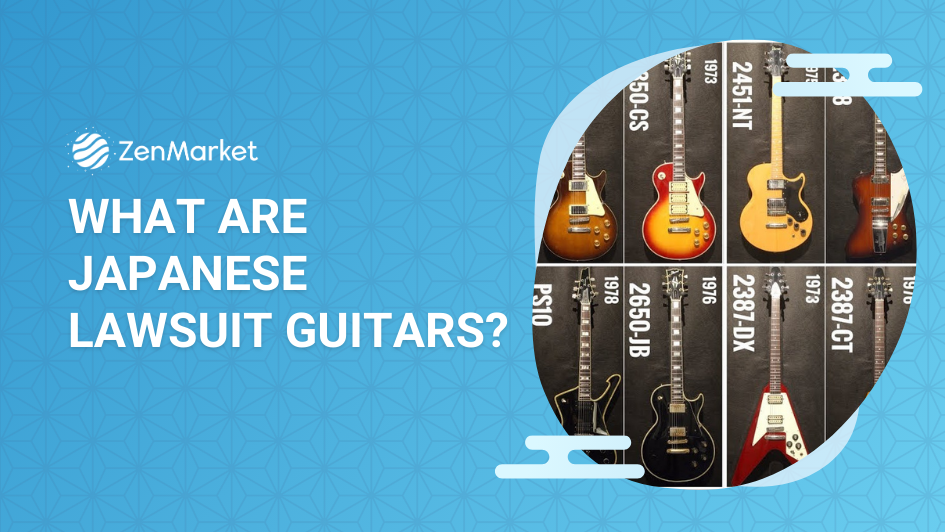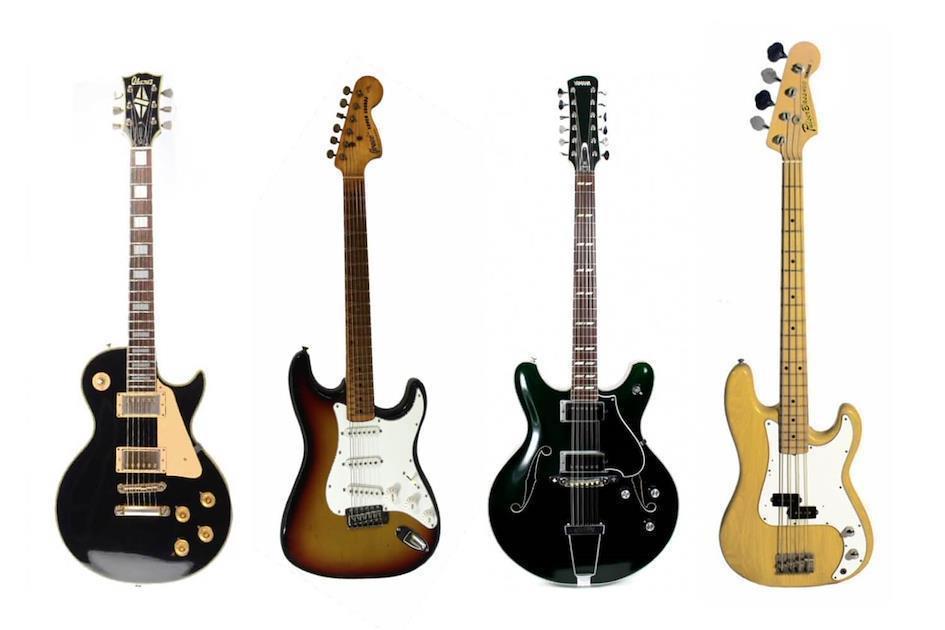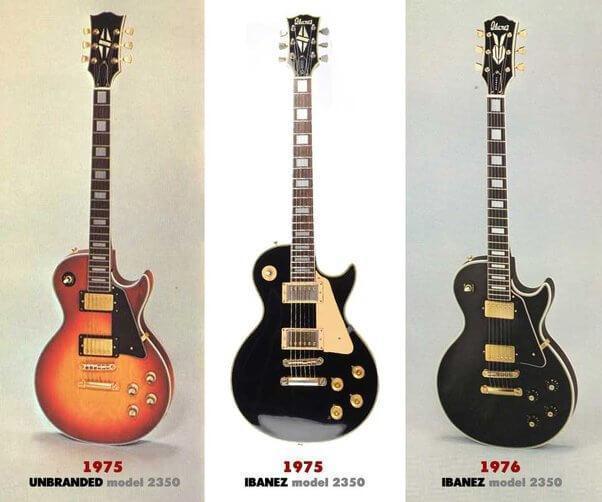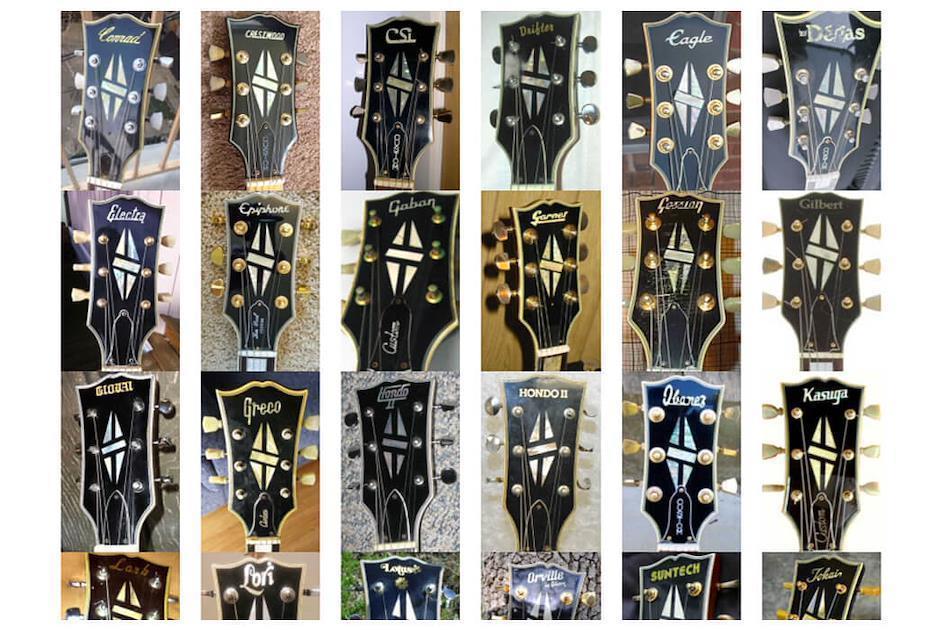[ad_1]
We’ve all been there. You want that guitar you’ve been eyeing for months, or even years, but you just can’t afford it. So you spend your days with your nose pressed flat against the guitar store’s window. Every day, you wish for the Les Paul that will take your guitar playing to the next level. Where the sound in your head actually comes out of the amp.
One day you decide to go into the store. You pick up that Gibson Les Paul and there it is: the smoothness of sound, the ease of playability, the beautiful finish and the quality of materials. You try to avoid seeing the price tag hanging off the headstock, dangling, almost teasing you. But you do. A feeling of sadness washes over you.
But there’s still hope. The store owner is a man called Hoshino Gakki Gen, and you’re in the 1970s in Japan. He shows you another Les Paul, but this time it’s an Ibanez. You have a strange look on your face. “What is this?” you ask. He looks at you and nods, as if saying ‘play it’ with the gesture. You start playing and the same feelings as before re-appear. The quality and the sound are almost the same, or even better in some regards. But there’s a huge difference: the price tag. It’s almost half as expensive.
So what do you do?
This is the story of these Japanese guitars. Commonly called Japanese Lawsuit Guitars, brands like Burny, Fernandes, Greco, Tokai, Guyatone and Ibanez have an incredible history.
Let’s learn more about them together.
From Spain To Japan To America
In the 1930s, Hoshino Gakki Gen, a guitar store owner, started importing classical guitars from Spain. They were called Ibañez. Inspired by these guitars, Hoshino Gakki founded Ibanez and started producing instruments of his own.
After his factories were destroyed in World War 2, he moved to Nagoya and became an export-only business. By the early 1970s, he was working with some of the best guitar and amp manufacturers in Japan.
On the other side of the world, a guitar maker named Harry Rosenbloom was selling handmade guitars in his Pennsylvania store. Unable to keep up with demand, he started importing Ibanez guitars to the US and selling them through his company, ‘Elger Guitars’.
In 1971, Hoshino Gakki purchased Elger Guitars and rebranded it ‘Ibanez, USA’. This is where our story truly begins.
Also Read: Top Vintage Japanese Guitars
Back then, some American guitar brands, including Gibson and Fender, weren’t known for consistent quality, yet their prices remained high. This gap in the market is where Ibanez saw an opportunity. After acquiring Elger Guitars, Hoshino Gakki began crafting replicas of popular American models by those brands, offering similar playing experiences at a more accessible price point.
Very soon, others started copying Hoshino Gakki’s ideas. For example, when it came to electric guitars, Fernandes took cues from Fender’s designs, crafting near-exact copies. Similarly, Takamine looked to Martin for guidance, building acoustics that mirrored some of their most famous models.
Although, at the beginning, the quality of these copies weren’t top-notch, by the mid-70s they became very popular amongst beginners and professionals alike. Some even preferred them over their American counterparts.
What happened next is not hard to understand; Why buy expensive American-made guitars when you could get high-quality Japanese ones for a fraction of the price? Their popularity soared, and players sought Ibanez, Fernandes, or Greco with the same enthusiasm as Gibson, Taylor, or Martin.
But then, how did they earn the nickname “Lawsuit Guitars”?
Well, American brands were very quiet at the beginning, but as sales of their guitars plummeted due to these imported instruments, they decided to take legal action.
Actually, there were fewer lawsuits than you might imagine. The only one worth talking about is the Gibson-Ibanez fight about the headstock design.
Gibson vs. Ibanez
By 1977 Gibson was fed-up. They saw the decline of their sales for years, and decided it was time to make a statement. They sued Ibanez’ parent company, Elger (the company Hoshino purchased in 1971) for copyright infringement of the headstock design. The so-called “open book” or “mustache” design.
Gibson wasn’t just trying to stop Ibanez, but it seems that they were trying to send a message to the whole Japanese guitar replica industry.
The lawsuit was settled out of court in 1978. The exact settlement is not public knowledge, but we do know Ibanez modified their headstock design. This legal battle marked a new beginning for Ibanez. Hoshino’s company took the chance to make big changes in their design, manufacturing processes and quality of craftsmanship. They launched all-new guitar models of their own design like the Iceman and the Destroyer – just in time for the metal revolution of the 1980s.
Also Read: All You Need to Know about Ibanez Guitars
It’s important to mention that technically the actual ‘Lawsuit’ guitars are just the Ibanez Les Paul replicas with the “open book” headstock. All the others share the same time and space, yet they are not in the same group. Though nowadays, we often use the term “Lawsuit Era Guitars” as a general label for all these instruments.
That doesn’t mean these other instruments aren’t excellent guitars. It’s simply important to clarify the distinction within the “Lawsuit Era” classification.
Find Your Japanese Guitar Today
The Legacy
More than 50 years after their birth, Lawsuit Guitars are some of the most sought-after instruments in the world.
Not just that.
Brands like Fernandes, and especially Ibanez, made a name for themselves. Ibanez has been chosen by great artists like Steve Vai, Ichika Nito, Paul Gilbert and Yvette Young. Over the past few decades, they are not known for copying Gibson or Fender, but now they are the brands being copied by others. But as the old saying goes: “Imitation is the sincerest form of flattery”.
The Lawsuit Era serves as a reminder that competition can be a powerful catalyst for innovation. Japanese manufacturers, faced with the challenge of affordability, not only replicated existing designs, but also pushed the boundaries of quality and playability. This in turn forced the American brands to step up and improve their manufacturing processes.
From the 1920s to the present day, the story of Japanese guitars has been written by brands and people who aren’t afraid of innovation. And especially during the 1970s, people like Hoshino Gakki Gen forced a stagnated business to evolve.
Also Read: 5 Most Popular Japanese Guitar Brands
Keep in mind, buying a vintage guitar without a serial number requires extra caution. Make sure you’re confident in its authenticity before purchasing. But if you have your nose pressed flat against the guitar store’s window and see a Ibanez Les Paul with no serial number and a “mustache” headstock, go inside and buy it.
I hope you can afford it!
[ad_2]
Source link







